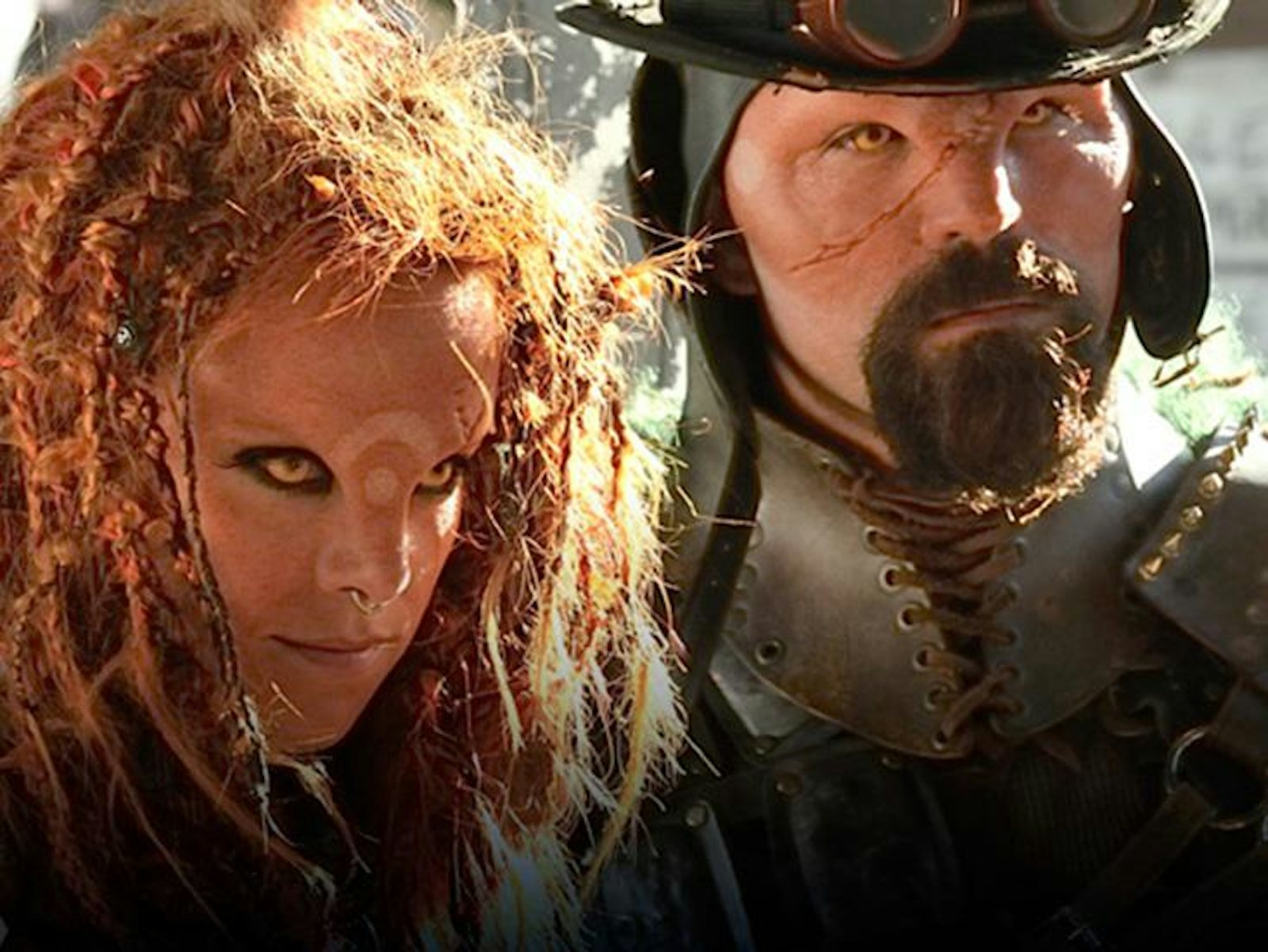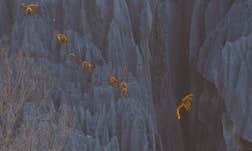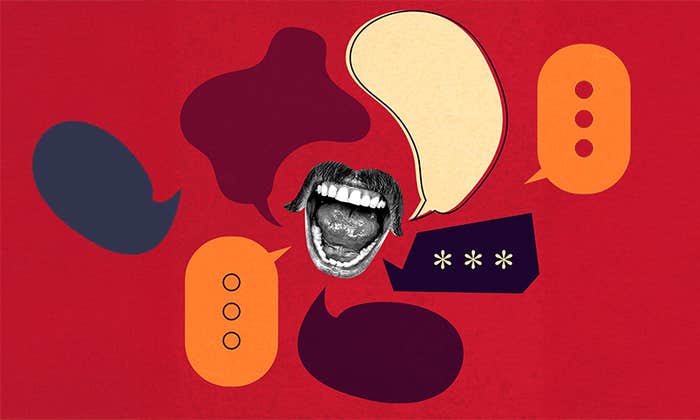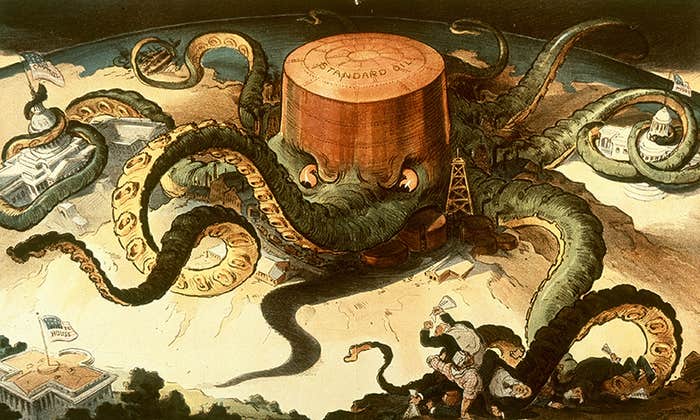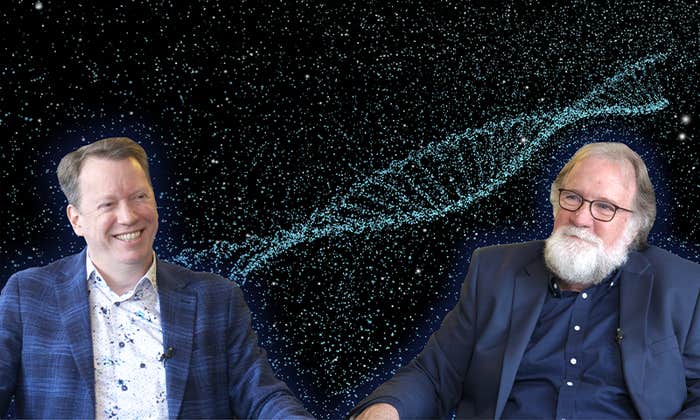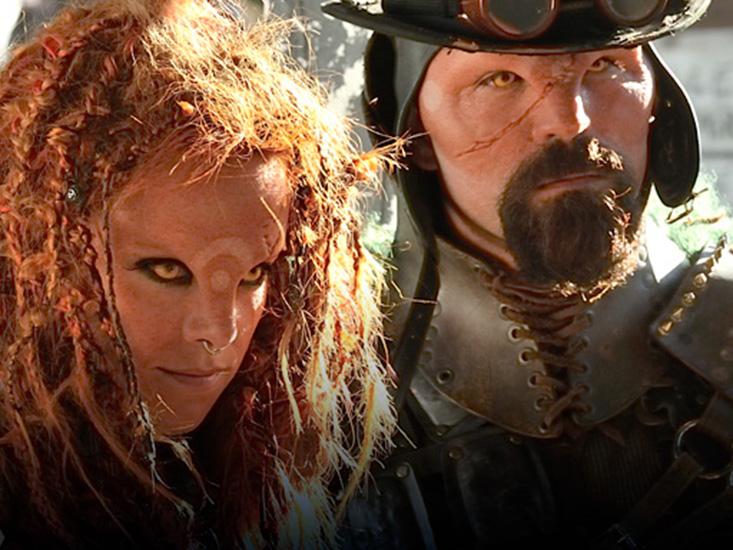
David J. Peterson is perhaps the most well known linguist in Hollywood. Since 2011, he has created numerous languages for television and films, including the HBO dramatization of George R. R. Martin’s Game of Thrones, the hit sci-fi show Defiance, and the language of the dark elves in both Thor films. If you need a language, Peterson is your man.
But unlike the nonsense script of the Ewoks of Star Wars, Peterson isn’t just trying to create something that sounds alien enough. His languages are all functional—they can be learned, spoken, and they can evolve, just as a “natural” language can.
Peterson sat down with Nautilus to explain how to create a language, and how the patterns that develop naturally from the act of meaning-making reveal an aspect of our humanness that we normally take for granted.
When did you first start creating languages?
While I was taking linguistics as an undergraduate, it occurred to me that I could probably create my own language, just for fun. The first language you create is generally really very bad, and certainly the first language I created was awful. You don’t really know what you are doing. I was interested in Arabic’s grammar structure, and Esperanto’s regularity, and so I was creating a language that had the grammatical structure of Arabic, but was very regular and easy to use.
Where did you start?
This isn’t the way to do it, but I started with an Arabic word root structure, so di- or tri- continental roots, where there are two or three consonants in a linear order, and then different vowels are fitted around the root to produce different words. The words start to fill themselves in as you come up with a pattern. So there was a pattern that would be associated with human beings, with verbs, with places, and so on. I didn’t create the words, so to speak. They kind of generated themselves.
Did it work?
I would not advise anyone to use that method, unless you are trying to create a new language for international use, like Esperanto. What I do now is entirely different: I start creating the language in a much older state. We don’t know exactly how and when language emerged, but you have to give yourself a cutoff point for the proto-language, and I think it should be about 1,000 to 2,000 years prior to the language you actually want. And you create that language, and then you evolve the new language from it. That produces a language that has a more natural look to it.
How do you evolve a language?
It is three different processes depending on what you are evolving. The sound system is pretty simple. We have a very clear idea of how a sound can change over time. We have plenty of examples within our languages to work with. So once you have an idea of how sounds change and know what you want, then you can go back and settle on a sound system that is going to evolve to what you want it to be. This also naturally produces irregularities, which are a fundamental aspect of language.
It is slightly easier to create a language for a hunter-gatherer culture. You understand how they got things done.
Meaning changes can be taken care of once the grammar is done. Evolving a grammar is very difficult and requires a lot of specialized study and skill. You need to know what you are looking for. For example, a lot of future tenses in the languages that we speak—you can see exactly where they came from if you go back in history. There are certain words that will glob on to verbs; affixes that will come to indicate a future tense. And so if you know some lexical sources, then you can produce your future tense and have a natural, semantic result.
What guides language evolution?
One part of it is just convergent, regular evolution: If you give something to a group of human beings and they use it over a period of years, it will evolve in certain regular ways. But another thing that guides linguistic evolution is our capacity for linguistic analogy. Humans are able to find a sense in things that are not obviously connected, to see a linguistic pattern, and apply it to similar but novel circumstances. That is what really allows human languages to evolve and grow, but nevertheless look familiar. Even in languages that are totally distinct and unrelated you will see the same types of things happening again and again in grammar, lexicon, and semantics.
Can you make a language that doesn’t follow any human language pattern?
Absolutely. You just need to know what makes human languages “human” to violate those parameters. One of my favorite examples is a language where the grammar is stack-based grammar. It is a computer thing. If you use the language in its most optimal form it is something that can’t be used in real time by humans. Our brains just don’t operate that way. Another example is Rikchik, a language by Denis Moskowitz. It was created for aliens with seven tentacles, but they never produce sounds that a human could emulate. You couldn’t even sign it! You don’t have the right number of tentacles.
Is it easier to create a language for another culture, or for your own?
It depends, and I will tell you precisely what it depends on: It depends on the level of technology. I think it is slightly easier to create a language for a hunter-gatherer culture. You understand how they got things done. You don’t need to worry about technological advancements made over thousands of years. Making languages for Defiance is far harder. There is so much history that those alien races have gone through and so much technological advancement—they need a lot of modern terminology, because they are a modern people with modern technology, and they have developed it over thousands of years.
How difficult were the languages you made for Game of Thrones?
Dothraki was very simple. The culture is very well defined in the books. We know a lot about what their life is like, and the area they live in. It is much more difficult for High Valyrian. It is a language for a people we never see and are just alluded to, but it is spoken widely by other peoples. I still wait for George R. R. Martin books to come out so I can learn more and more little bits of what their culture was like so that I can flesh out their vocabulary.
What have you discovered through making languages?
Part of why we create languages is it’s a method of self-discovery, and an artistic enterprise to come up with different ways of seeing the world. One interesting thing is seeing if you have created something that someone else has created and you have just never seen it before. You see etymologies where you came up with this idea and thought, “This would be a perfect way to express this,” and then you see the exact same thing happening in Tegalu. It shows you that what you are coming up with was right all along. Someone else had the idea too. It is just really part of being human.
Claire Cameron is Nautilus’ social media & news editor. @clarabell8















